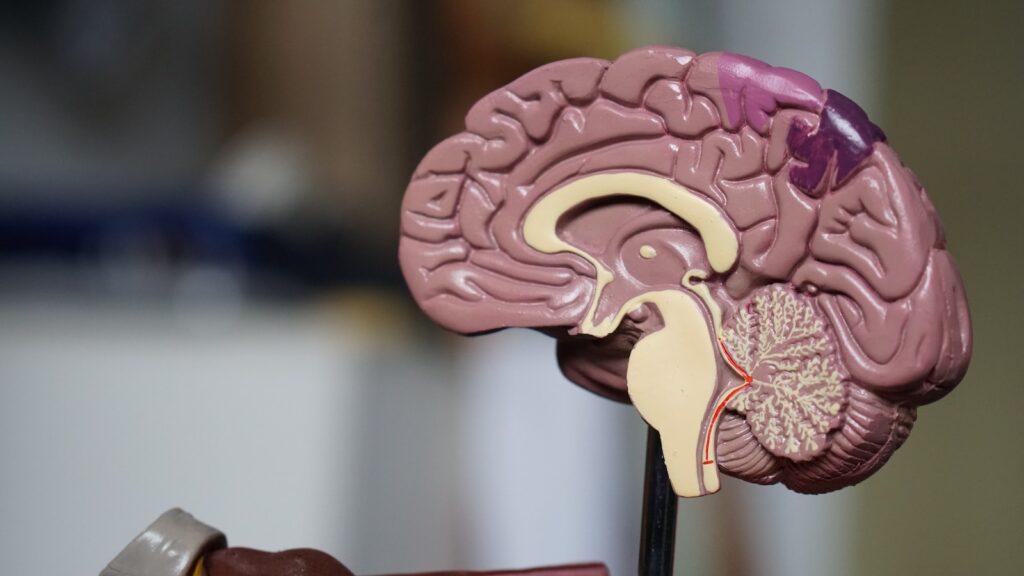Dopamine is a neurotransmitter that plays a key role in regulating feelings of pleasure, motivation, and movement in the brain. It is involved in a range of important functions, including the regulation of mood, attention, and addiction. Our food choices can impact our levels of this neurotransmitter, as certain foods can increase or decrease either production or receptor sensitivity. While it is important to consume foods that can support optimal levels, it is also important to have a balanced approach to food choices and to consider other lifestyle factors that can impact your dopamine levels and overall brain health.

Dopamine is a type of neurotransmitter, which is a chemical substance that is produced by nerve cells and used to transmit signals between nerve cells in the brain. It is a key player in the reward system of the brain, and is involved in regulating feelings of pleasure, motivation, and movement.
It is produced in several areas of the brain, including the substantia nigra and the ventral tegmental area. It is involved in a number of important functions, including the regulation of movement, mood, attention, and motivation. Sounds pretty important to me!
Abnormal levels of dopamine in the brain have been linked to a range of neurological and psychiatric disorders, including Parkinson's disease, schizophrenia, addiction, and attention deficit hyperactivity disorder (ADHD). That makes keeping a good balance of these levels even more important.
The food we eat can have an impact on our dopamine levels as it is produced from the amino acid tyrosine, which is found in protein-rich foods such as meat, poultry, fish, dairy, and soy products. Therefore, consuming these types of foods can increase the level of production of this key neurotransmitter in the brain.
In addition, certain foods can also affect these levels indirectly. For example, foods that are high in sugar and fat can trigger the release of dopamine in the brain's reward centers, leading to feelings of pleasure and satisfaction. This is why many people find these types of foods to be comfort foods that they turn to when they are feeling stressed or down. Binge eating of the wrong food can almost always be tied to imbalance in this, and other neurotransmitters.
However, it is important to note that excessive consumption of high-fat and high-sugar foods can also lead to a decrease in receptor sensitivity over time, which can ultimately lead to a decreased ability to experience pleasure from natural rewards such as social interactions and physical activity. This can contribute to the development of addiction, depression, and even obesity.
Overall, a healthy and balanced diet that includes a variety of nutrient-dense foods can help support optimal dopamine levels and overall brain health.

20 foods that can help improve dopamine levels:
1. Fava beans - Contain high levels of L-DOPA, a precursor to dopamine.
2. Almonds - Rich in tyrosine, an amino acid that helps increase levels.
3. Avocado - Contains high levels of tyrosine and vitamin B6, which are both important for dopamine production.
4. Bananas - Rich in tyrosine and vitamin B6, which are both important for production.
5. Dark chocolate - Contains phenylethylamine, which can increase levels and provide a mood boost.
6. Eggs - Rich in tyrosine and other amino acids that are important for production.
7. Fish - Contains omega-3 fatty acids, which can help increase receptor sensitivity.
8. Green tea - Contains theanine, an amino acid that can help increase levels and reduce stress.
9. Lean meat - Rich in tyrosine and other amino acids that are important for production.
10. Legumes - Rich in L-DOPA, a precursor to dopamine.
11. Milk - Contains high levels of tyrosine, an amino acid that helps increase levels.
12. Nuts - Rich in tyrosine and other amino acids that are important for production.
13. Oatmeal - Contains high levels of complex carbohydrates, which can help regulate these levels.
14. Oranges - Rich in vitamin C, which can help protect dopamine-producing neurons.
15. Quinoa - Contains high levels of protein and complex carbohydrates, which can help regulate levels.
16. Spinach - Rich in folate and iron, which are both important for production of this chemical.
17. Soy products - Rich in tyrosine, an amino acid that helps increase your levels.
18. Strawberries - Rich in vitamin C, which can help protect dopamine-producing neurons.
19. Turkey - Rich in tyrosine and other amino acids that are important for this chemical's production.
20. Yogurt - Contains high levels of tyrosine, an amino acid that helps increase levels.
It is important to note that while these foods can help support optimal levels of this particular neurotransmitter, a healthy and balanced diet that includes a variety of nutrient-dense foods is the best way to support overall brain health.
Dopamine is a neurotransmitter that is involved in regulating feelings of pleasure, motivation, and movement in the brain. The food we eat can impact dopamine levels, as it is produced from the amino acid tyrosine which is found in protein-rich foods.
Certain foods, such as those high in sugar and fat, can also trigger the release of neurotransmitter in the brain's reward centers. However, excessive consumption of these types of foods can lead to a decrease in the specific receptor's sensitivity over time.
Eating a healthy and balanced diet that includes a variety of nutrient-dense foods can help support optimal dopamine levels and overall brain health. Foods that can help increase dopamine levels include fava beans, almonds, avocado, bananas, dark chocolate, fish, green tea, lean meat, legumes, milk, nuts, oatmeal, oranges, quinoa, spinach, soy products, strawberries, turkey, and yogurt.
While it is important to consume foods that can help support optimal levels, it is also important to have a balanced approach to food choices. Eating a wide variety of whole, nutrient-dense foods can provide the body with all of the necessary nutrients and support overall health and well-being.
And finally, lifestyle factors such as exercise, stress management, and adequate sleep also play an important role in maintaining optimal levels and overall brain health. The right diet, and the right lifestyle, is key to your good health.
CLICK HERE to see what Wikipedia, the online encyclopedia, has to say about Dopamine.